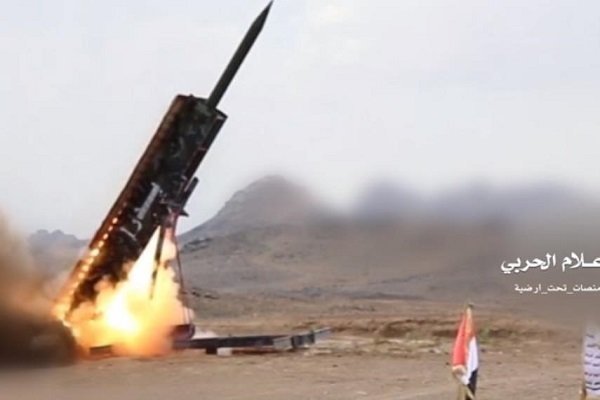Saudis dread Yemen’s underground ballistic missiles

TEHRAN - Three years and counting since the Yemen War begun, Yemen unveiled underground rocket platforms that has put Riyadh in absolute terror.
The launch of the missile shield of its armed forces has hijacked the aggressors in its new achievement, the "underground ballistic missile platforms."
Just recently, Yemen’s Ansarullah unveiled underground ballistic missile platforms for the first time. According to Al Masirah, a Yemeni TV channel founded and owned by the Ansarullah, the new missiles are more developed which is considered a great accomplishment for Yemenis.
This is while, the Saudi-led coalition is only capable of targeting Yemeni innocent civilians and not Yemeni rocket launchers.
The Yemeni army missile units have targeted sensitive and strategic locations of the aggressor numerous times. For example, with Badr-1, which is a new short-range ballistic missile system, Yemeni forces succeeded to target Saudi Aramco Oil Company. The fact is that Yemen's Missile Force unveiled “Badr 1” in retaliation for the ongoing aggression from Saudis.
Thus, unveiling the ground rocket platforms is a proof of Yemeni missile power and their strength in missile operations.
The series of Yemeni missile operations against the Saudis and their mercenaries show that the Yemeni army forces have created many problems for the invaders.
The Yemeni missiles successfully controlled the Aramco oil company in Saudi Arabia several times with the Badr-1 ballistic missile. In addition, the headquarters of the Saudi Defense Ministry in Riyadh was targeted by the Barkan ballistic missile-2 of the Yemeni army and popular committees and all the evidence suggests that rockets did hit their targets in Riyadh and are border cities.
According to this report, Saudis are now relying on the patriot, U.S.-based anti-missile system to fight Yemenis. In any case, it is evident that the Saudis are struggling to escape missile attacks by the military and popular committees of Yemen while the Yemenis continue to develop longer-range missiles.
The Yemeni forces, with their fresh achievements following three years of fighting, proved that they did not face any restrictions in their rocket attacks on Saudi positions. This is a deterrent to Saudi Arabia's attacks. The accomplishment also proved that Yemeni missile reserves are still in place, and Saudi Arabia has no choice but to accept defeat and leave Yemen.
A spokesman for the Houthi-aligned military, Colonel Aziz Rashed noted that the Yemeni missile force was capable of hitting strategic targets deep inside the Saudi territories.
A senior military officer in Sanaa, on condition of anonymity, told the newspaper Al-Akhbar that since the Arab invasion in Yemen, at least 90 ballistic missiles have been fired at Saudi military centers and oil facilities. Several military sources insist that the Ansarullah movement, after having been in control of the city of Sanaa in December 2014, has left the country's shells and missile centers around the capital.
Yemen’s missiles have surprised the Saudis and others in the coalition. The fact that Yemen has the capability to produce missiles has given the country some leverage against the forces attacking Yemen and may improve Yemen’s bargaining position in any future negotiations.
The Saudis in any event cannot accept the fact that Yemen has such missile capabilities and have claimed that Iran must be behind this deterrent and has been supplying military equipment, including ballistic missiles, to Yemen.
The official spokesperson for Ansarullah, Mohammed Abdel Salam, has said that those who claim Iranian forces and weapons are in Yemen have failed to show any proof.
Sadiq al-Sharrafi, a member of Yemen's Ansarullah also said that there were no Iranian weapons in Yemen. “If we had missiles from Iran, the situation would be different and we could see a mass migration from the cities of Saudi Arabia. There are no terrestrial, naval or airborne weapons from Iran in Yemen. If Iran's weapon support for Yemen really existed, you would see things going in a different direction.”
Leave a Comment